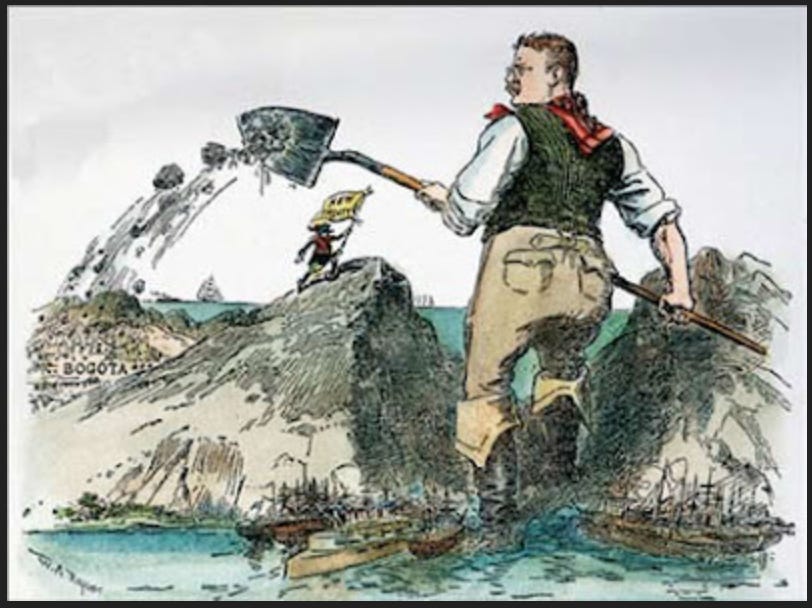A Man, A Plan, A Canal - Panama!
The best way to understand this administration's flurry of initiatives may be as “palindrome policy:” they make sense in more than one direction at once.
First, stop asking: “Can he do that?”
Critics denounced Teddy Roosevelt’s Panama Canal as an “engineering folly” when he embraced the vision in a 1903 speech to Congress. By 1945, it was not just a major hub of global sea trade, but also one of the most famous palindromes in the English language.
Of all the proclamations executive orders and social media posts over the last 18 days, you are right to wonder: Is that wise? Is that effective? Is that legal? But it’s long past asking if it’s something President Trump “can,” because he just did. However this current adventure ends, future presidents should at least press the boundaries of the conventional, while allowing cooler heads to think through the unintended consequences, hidden costs and damage to alliances.
Second, in the spirit of great palindromes, it seems helpful with this new team to take every justification at face value and then look for the hidden meanings. Much of what we are seeing is improvisational rather than part of any grand plan, but it’s worth asking: Is it intended for more than one audience? Does it make sense in a different context? What if you just spell it backward?
Take the tariffs on Mexico and Canada announced and delayed this week. These were not actually aimed at America’s neighbors as it may have appeared. The quick last-minute settlements did very little for border security that would not have happened in the course of normal bilateral consultations. But they did deliver a very loud message to the president’s supporters that he had hit the ground in Washington running. They also sent an unmistakable signal to Xi Jinping that he had better get ready for some serious conversations on how much more American LNG and soybeans China stands prepared to buy.
The sovereign wealth fund that appeared suddenly in an Executive Order this week may, in fact, be intended to invest in long-term projects with money collected from tariffs. But if it seems strange that the new team is leading with an idea that President Biden’s advisors designed and endorsed, maybe the urgency of this announcement also serves as a message to the Trump TikTok voters that he hasn’t forgotten them.
The theatrical shuttering of USAID this week seems unwise and illegal, without Congressional approval, but the institution is a longstanding bugbear for Republicans. But the real target may lie in a very different direction. Buying out government employees or closing government departments with such theatrical tactics doesn’t save much money and probably drives away the most talented civil servants. But maybe it helps inoculate the president from the Freedom Caucus when, at least initially, his tax cuts blow a larger hole in the deficit.
Third, however, just because he can do these things and just because they are aimed in lots of different directions does not make for great results. Denis McDonough, who served as President Obama’s chief of staff, used to say that “process protects you” from mistakes. Indeed, just a bit more careful review would have avoided an embarrassing reversal of the orders to freeze government payments.
Elon Musk’s review of the Treasury’s payment mechanism won’t likely save money and won’t be able to stop all the improper payments that do get made. But anything that starts prioritizing payments that align with the president’s priorities starts to raise questions about the creditworthiness of the United States of America and whether we stiff bondholders or Social Security recipients when the next debt limit hits.
A government vehicle that takes stakes in private firms is wide open for corruption and abuse. Cutting foreign aid, which represents just less than half a percent of the $6 trillion budget, risks humanitarian disasters that will drive more countries into the arms of China. And even talking about
taking control of the Panama Canal (or Greenland or Gaza) sets off a green light for leaders everywhere to revisit current borders.
If it’s important to examine the flurry of Trump initiatives forwards and backwards, it’s crucial to think through where he is planning policy land mines that will explode one day where they are least expected.




